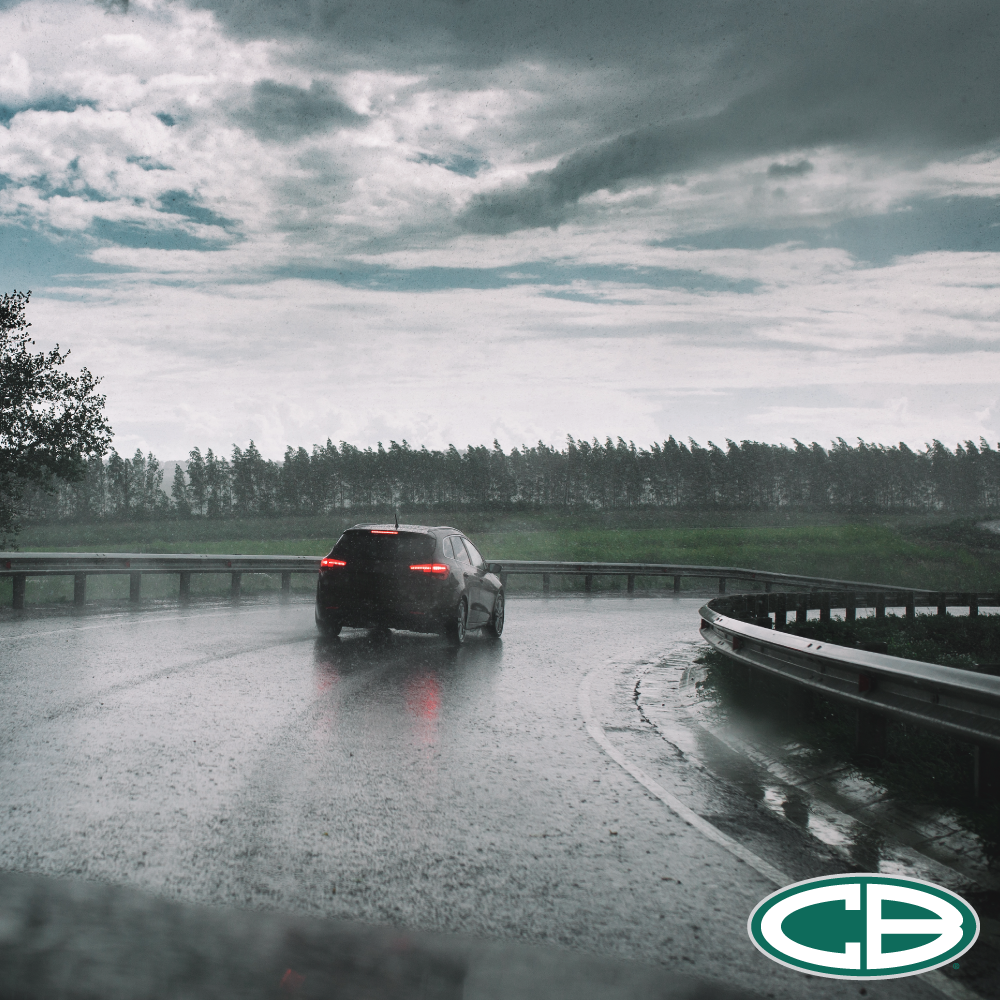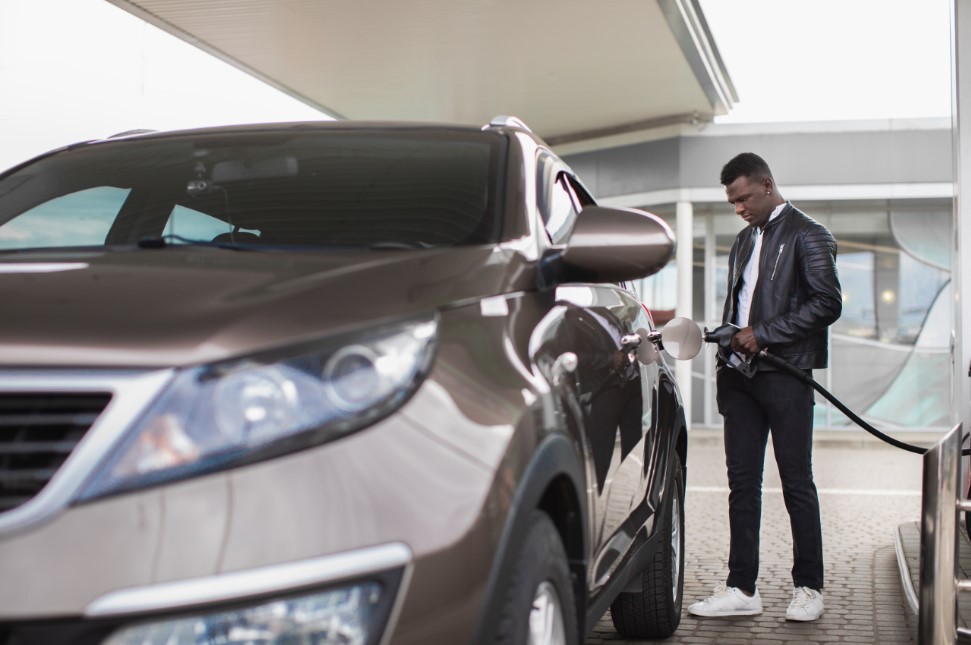How Does Inclement Weather Affect Stopping Power?

No matter where you live, you’re going to face some bad weather from time to time. Driving in inclement weather is considerably different from driving on a dry and sunny day, notably in your vehicle’s stopping power–or its ability to slow down or come to a stop while remaining under control.
Do you know how your vehicle will change when the ground becomes slightly damp? What about extremely wet, snowy or icy? Our blog takes a look at these important questions and provides you with what you need to know about how to drive safely when the weather takes a turn for the worse.
Stopping Power Quantified
Your vehicle’s stopping power is influenced by many different factors. Most notably is your vehicle’s weight—the more your car weighs, the more difficult it is to bring it to a stop. This is why a small sedan can usually stop quickly, while an 18-wheeler truck will often need a bigger amount of space to slow down.
The second factor affecting your stopping power is the size of your vehicle’s brakes. To put it simply, the larger the brakes, the better they are at stopping your car.
Finally, your tire tread is integral to how well your car can stop. A tread pattern that allows more rubber to come in contact with the road at any given point is going to have better stopping power.
Weather Conditions & Stopping Power
Stopping power depends on one important physical force: friction. Your brakes use friction to turn the energy of your car moving forward into heat. This is done as your brake pads press against rotor discs or drums that are connected to your axle, slowing the car down. The heat then dissipates through the air cooling as your car moves.
Additionally, your tires use friction to keep your vehicle on the road. Better friction means better grip, and that means faster acceleration, quicker stopping, and better handling.
However, when the weather gets bad, precipitation provides lubrication that reduces the friction your vehicle depends on, especially when braking. Wet roads are slippery, meaning your tires can’t grip onto the road in the same way. Cornering too sharply, braking too hard, or accelerating too fast causes your tires to lose friction and spin out of control. Then your car loses control and puts you at risk of a crash. The same can be said for your brakes—brakes that are wet become slippery too. When driving in the rain or snow, it takes longer for your brakes to actually bring your car to a stop than on a warm, dry day.
This effect is only magnified when your tires or brakes are in poor condition. When it comes to your tires, your tread plays an important role in helping you maintain the friction you need to stop in bad weather. Tread is responsible for collecting water from the road and directing it away from the surface of your tire, enabling your tire to connect with the pavement. Worn-out tread or treads that are too small are more likely to fill with water, preventing them from moving away all of the water.
Different types of precipitation make a different impact on your driving. Rain is a liquid and is easy to move, so it doesn’t hold the same impact as snow or ice. Snow is essentially a very soft form of ice. While it is possible for your tires to push through snow, it is considerably harder for your tires to grip the road. Ice is by far the most dangerous weather to drive in because your treads cannot push it away and it’s already slippery to begin with.
How to Drive Safely in Bad Weather
Navigating safely in bad weather can be boiled down to one simple change to your driving habits: slow down. When your vehicle is traveling quickly, you need more friction and grip to keep your car under control. When the roads are wet, snowy, or even frozen, conditions don’t allow for the same speed as they would when the roads are dry and warm. Therefore, slowing down will keep you safer.
Another way to stay safe in inclement weather is to make sure your tires are in good condition. If you live in a region where winter weather such as snow and ice are common, switching to winter tires as weather grows colder is an important part of your winterization process. If your treads are worn, it’s time to replace your tires.
About Christian Brothers Automotive
At Christian Brothers Automotive, your safety is our top priority. We understand that driving in Mother Nature’s worst can be frightening, especially when your family is in the car. If you’re looking to winterize your vehicle, or if you have concerns about your braking system, or you just need a simple oil change, our certified technicians can help. With over 215 locations across the country, and a 3 Year/36,000 Mile Warranty, convenient auto care is just around the corner.
Call your local Christian Brothers Automotive to schedule your next auto care appointment today.


[1].jpg)
Sunwash-Tech-with-Customer.jpg)

